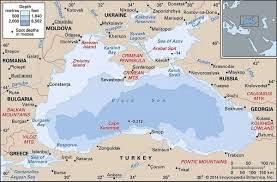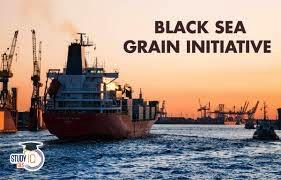 Through mediation by the United Nation, the Russian Federation and Ukraine are attempting to reach agreement on a longer term for the Black Sea Grain Initiative (BSGI). Russia requires the cooperation of the Kyiv government to transit Ukraine to ship ammonia by pipeline to their export port near Odesa in the occupied Crimea Peninsula.
Through mediation by the United Nation, the Russian Federation and Ukraine are attempting to reach agreement on a longer term for the Black Sea Grain Initiative (BSGI). Russia requires the cooperation of the Kyiv government to transit Ukraine to ship ammonia by pipeline to their export port near Odesa in the occupied Crimea Peninsula.
Russia is also suffering from exclusion from the SWIFT international payment system that is preventing the Russian Agriculture Bank from receiving payment from importers. The Russian Federation is also suffering from sanctions which have denied the nation supplies of spare parts and new agricultural machinery. Sanctions have also blocked some  Russian assets that are needed to maintain the operation of exporting companies supplying petrochemicals, gas, crude oil and agricultural commodities. It is evident that sanctions are taking a toll on the Russian economy despite the support of nations including China, North Korea , Turkey and various autocratic regimes. This has emboldened the Foreign Ministry to threaten to cancel the BSGI in July unless demands are met. Given that the navy of the Russian Federation is less competent than their army NATO could establish free passage in the Black Sea. Even with the BSGI Ukraine has 10 million metric tons of grain in storage from the 2022/3 harvest of 53 million metric tons with prospects of a 25 million ton shortfall in exports for the 2023/4 crop.
Russian assets that are needed to maintain the operation of exporting companies supplying petrochemicals, gas, crude oil and agricultural commodities. It is evident that sanctions are taking a toll on the Russian economy despite the support of nations including China, North Korea , Turkey and various autocratic regimes. This has emboldened the Foreign Ministry to threaten to cancel the BSGI in July unless demands are met. Given that the navy of the Russian Federation is less competent than their army NATO could establish free passage in the Black Sea. Even with the BSGI Ukraine has 10 million metric tons of grain in storage from the 2022/3 harvest of 53 million metric tons with prospects of a 25 million ton shortfall in exports for the 2023/4 crop.
It is hoped that a negotiated peace will end the ongoing war between the Russian Federation and Ukraine obviating the need for extension of the BSGI or use of new terminals being developed on the Bystre Canal of the Danube Delta